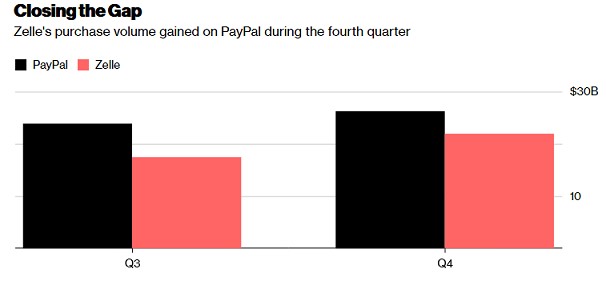When the likes of Tesla CEO Elon Musk and renowned venture capitalist Peter Thiel founded PayPal back in 1998, they had pretty lofty goals. Chief among them was to totally disrupt old guards such as MasterCard, Visa and American Express, and then finish it off by completely disintermediating fiat currencies.
Well, two decades later, the old guards and fiat currencies are still going strong--but so is PayPal. PayPal has evolved into the most dominant online payment platform in the world, with people in more than 200 countries across the globe using it to send and receive payments.
PayPal has been through hell and survived, but not for competitors' lack of trying. Apple Pay, Facebook Payments, Samsung Pay and a bunch of startups have all had a go at the payment services provider. But the competition hasn’t been that impressive until recently. In fact, PayPal reported total payment volume of 451 billion for 2017, a healthy 27-percent growth.
For many, these 3 startups might not readily ring a bell, but PayPal investors had better get acquainted with them, fast:
#1 Zelle
PayPal has tried to take out banks in the past; now banks have ganged up to serve the company a taste of its own medicine. Zelle is a bank-backed person-to-person payment system that's hell-bent on luring millennials and making PayPal look ancient. And, it seems to be working.
Zelle processed payments worth a cool $75 billion in 2017, more than double Venmo's $34.6 billion and not bad at all for a startup that's only been around for only a couple of years.
Zelle is only second to PayPal in peer-to-peer transactions because of Xoom, a cross-border payment processors that PayPal acquired in 2015.

(Click to enlarge)
Source: Bloomberg
Millennials have been embracing new generation peer-to-peer payment systems to split rent and pay for dinners. With more than 60 banks backing Zelle, PayPal has its work cut out trying to keep Venmo relevant.
#3 YapStone
A lot of fintech startups are currently focusing on the crypto space. YapStone, in contrast, is content to keep a low-profile. The company is a payment services provider for marketplace-style businesses such as HomeAway, as well as faith-based NGOs such as ParishPay.
If you are thinking there's not a lot of money to be made in that niche, then you are dead wrong. YapStone processed payments worth nearly $20 billion in 2017, effectively making it one of the biggest payment company most people have never heard of. Related: Is the Yieldco Market Finally Maturing?
YapStone recently raised $100 million in its latest round of funding, valuing it at around half a billion dollars. You could be hearing a lot more about this company over the next couple of years.
#3 Klarna
You can call Klarna the PayPal of Europe--$22 billion in online payments processed in 2017 and a valuation of $2.3 billion.
Swedish online payment group Klarna is one of the most successful fintech startups in Europe, and one of the fastest-growing as well.
In fact, in 2017, the company became the largest fintech in Europe to receive a banking license. It's mission is to reshape retail banking not only in Europe but also the rest of the world.
Backed by high-profile investors and VCs including Sequoia Capital and Atomico, Klarna has been growing like a weed, with 2017 revenue up nearly 30 percent, while payment volume increased 42 percent.
If Klarna succeeds in disrupting banks in one of the largest banking centers of the world, then PayPal will have plenty to think about. Maybe an acquisition is in the cards?
By Jan Bauer for Safehaven.com
More Top Reads From Safehaven.com:
















